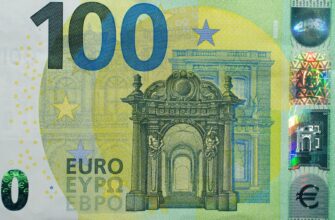🚀 USDT Mixer — Ultimate Privacy, Zero Hassle
Take full control of your USDT TRC20 transfers with our secure mixing service. 🧠
No registration. No personal data. Just clean, private transactions 24/7. 🌐
Transparent fees starting from only 0.5%.
Swiss ETFs: Invest in Switzerland’s Stability & Innovation
Swiss ETFs offer investors targeted exposure to one of the world’s most resilient economies, combining Switzerland’s renowned financial stability with cutting-edge innovation. As exchange-traded funds tracking Swiss stocks or indices, they provide instant diversification across sectors like banking, pharmaceuticals, and luxury goods while minimizing risk. This guide explores why Swiss ETFs deserve consideration in any globally minded portfolio.
Why Invest in Swiss ETFs?
Switzerland’s unique economic profile creates compelling advantages for ETF investors:
- Market Stability: Switzerland’s AAA credit rating, low inflation, and political neutrality make it a global safe-haven destination.
- Sector Leadership: Home to world-dominating companies in pharmaceuticals (Novartis, Roche), finance (UBS, Credit Suisse), and luxury (Swatch, Richemont).
- Currency Hedge: The Swiss franc (CHF) historically strengthens during market turbulence, adding defensive qualities.
- Innovation Focus: High R&D investment in biotech, robotics, and sustainable technology drives long-term growth.
- Dividend Potential: Swiss blue-chips often offer attractive shareholder yields.
Top Swiss ETFs for Your Portfolio
Consider these leading funds for Swiss market exposure (data as of 2023):
- iShares MSCI Switzerland ETF (EWL): Tracks 40+ large/mid-cap stocks. 0.50% expense ratio. Top holdings: Nestlé, Novartis, Roche.
- Xtrackers MSCI Switzerland Hedged Equity ETF (DBCH): Currency-hedged version of EWL. Mitigates CHF volatility for USD investors.
- SPDR MSCI Switzerland Quality Mix ETF (QCHF): Focuses on high-profitability firms with strong balance sheets. 0.30% expense ratio.
- UBS ETF (CH) MSCI Switzerland UCITS ETF: EUR-denominated option for European investors. 0.28% fee.
How to Invest in Swiss ETFs
Follow these steps to add Swiss ETFs to your portfolio:
- Choose a Brokerage: Select a platform offering international ETF access (e.g., Interactive Brokers, Saxo Bank, or local brokers with global reach).
- Analyze Fund Details: Compare expense ratios, holdings, dividend policies, and tracking error.
- Consider Currency Impact: Decide between CHF-unhedged (for franc exposure) or hedged ETFs (to reduce FX risk).
- Execute Trades: Buy shares through your brokerage during exchange hours (SIX Swiss Exchange: 9AM-5:30PM CET).
- Monitor & Rebalance: Review holdings quarterly and adjust based on market conditions.
Key Risks to Consider
While Swiss ETFs offer stability, be mindful of these challenges:
- Market Concentration: Financials and healthcare comprise ~60% of major indices, increasing sector-specific risks.
- Currency Fluctuations: CHF strength can erode returns for foreign investors without hedging.
- Valuation Premiums: Swiss stocks often trade at higher P/E ratios than global peers.
- Geopolitical Shifts: Changes in banking secrecy laws or EU relations could impact key industries.
Swiss ETFs vs. Individual Swiss Stocks
Understand the trade-offs:
- ETFs Pros: Instant diversification, lower research burden, reduced single-stock risk.
- ETFs Cons: Management fees, limited upside from individual winners.
- Stocks Pros: Potential for higher returns from stock-picking, direct ownership.
- Stocks Cons: Higher volatility, research-intensive, exposure to company-specific failures.
FAQ: Swiss ETFs Explained
Q: Are Swiss ETFs suitable for dividend investors?
A> Yes. Many Swiss companies have strong dividend traditions, with sector-average yields around 2-3%. Funds like EWL distribute dividends quarterly.
Q: How does Switzerland’s negative interest rate policy affect ETFs?
A> While negative rates pressure bank profits, they’ve also driven investors toward equities, potentially supporting ETF valuations. Most Swiss ETFs hold minimal cash.
Q: Can US investors buy Swiss ETFs?
A> Yes. Popular options like EWL trade on NYSE Arca. Check for US-domiciled funds to avoid tax complications with PFIC rules.
Q: What percentage of my portfolio should be in Swiss ETFs?
A> Typically 5-15% for international allocation, depending on risk tolerance. Switzerland represents ~3% of global market cap.
Q: Do Swiss ETFs include small-cap companies?
A> Most focus on large-caps. For small-cap exposure, consider specialized funds like the iShares MSCI Switzerland Small Cap ETF (currently unavailable to retail investors).
Swiss ETFs deliver a unique blend of defensive attributes and growth potential through globally dominant companies. By understanding their risks and opportunities, investors can effectively harness Switzerland’s economic strengths for portfolio resilience and long-term returns.
🚀 USDT Mixer — Ultimate Privacy, Zero Hassle
Take full control of your USDT TRC20 transfers with our secure mixing service. 🧠
No registration. No personal data. Just clean, private transactions 24/7. 🌐
Transparent fees starting from only 0.5%.








